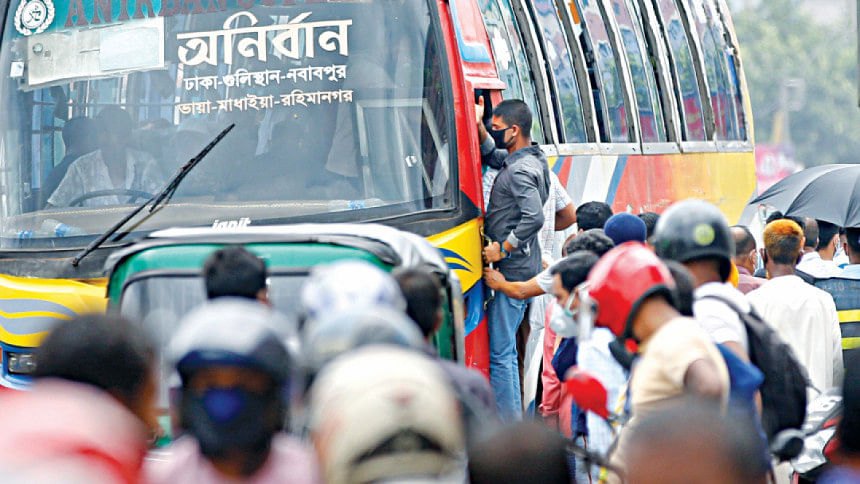Why is the public burdened with the costs of ill-timed govt decisions?

The hike in fuel prices, which led to a strike of public transport and goods-carrying vehicles since Friday morning, left the general public struggling to go about their daily lives and had a number of other knock-on effects. The resulting delays and disruptions in the supply chain caused the prices of certain daily essentials to soar, further adding to the public's misery, and businesses were affected as well—according to a report in this daily, the resulting disruptions in the RMG supply chain could cost the country crucial export earnings.
The government's sudden decision to hike fuel prices, without any prior consultation with or notice to the industries that would be most affected, was clearly a miscalculation. We find it difficult to comprehend this lack of foresight, coupled with the authorities' lethargic reaction in dealing with the aftermath. Associations of goods-carrying vehicle owners, who have declared that they will continue the ongoing strike until the government goes back on its decision to raise fuel prices, said that the authorities did not bother to meet with them properly, and they did not attend today's meeting since it was solely on the topic of bus fares.
The result of today's meeting between the Bangladesh Road Transport Authority (BRTA) and transport leaders was as predicted—the government decided to raise bus fares, with intercity bus fare going up by 26.5 percent and inter-district bus fare by 27 percent. In response, the bus owners withdrew their strike. However, no one offered any explanations as to why the public are shouldering the costs of this ill-timed decision. At the time of writing this column, the meeting with launch owners was still in progress, but a certain amount of price hikes is expected for launch travel as well.
Now that we are right in the middle of pandemic recovery, why are industries being slapped with rising costs of fuel? At a time when the pandemic has pushed hundreds of thousands, if not millions, into poverty, why are ordinary citizens facing higher costs of transport? The authorities have referred to global price increases as an explanation. However, experts argue that the Bangladesh Petroleum Corporation (BPC) had previously earned profits when global prices fell and local prices stayed the same, and they can now use that to subsidise current prices. We urge the government to consider this alternative, and make a serious effort to not harm economic recovery and add to the public's sufferings during this crucial period.

 For all latest news, follow The Daily Star's Google News channel.
For all latest news, follow The Daily Star's Google News channel. 



Comments